“Coffee?” The woman stood in front of a food table staffed by volunteers. While a volunteer filled her cup, the woman said, “My village—” she motioned an explosion with her hands. “Gone.” She accepted the paper cup and disappeared back into the crowd.
A grandmother waited in her van with three of her grandchildren. The other four kids in the car were other children from her village, children whose parents sent them with her and stayed behind.
A woman my age in a black coat and knit hat followed a three-year-old in a snowsuit and whispered softly to her son, who looked like he was about 12—not much older than Isaac. The sun shone on his face as he nodded briefly and blinked rapidly. His eyes glistened with tears, but they didn’t fall. He blinked until the tears went away, then sat down on a curb with his little brother.
“Coffee?” A man asked a volunteer. She filled a cup and held it out to him. He looked into space, past the cup. Seconds passed. The volunteer continued to hold the cup. More time passed. Finally the man blinked, surprised to see the coffee in front of him. “Oh!” he said, taking the cup and putting his other hand over his collarbone, nodding once. “Spacibo.” Thank you.
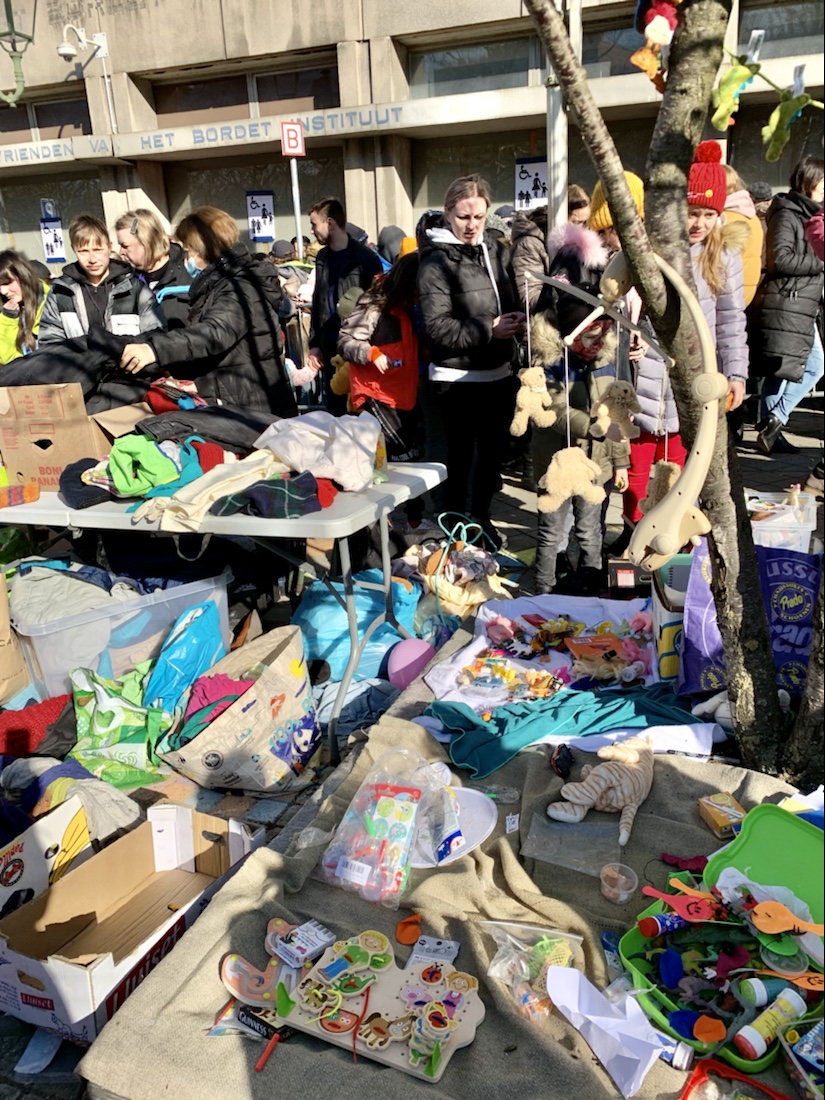
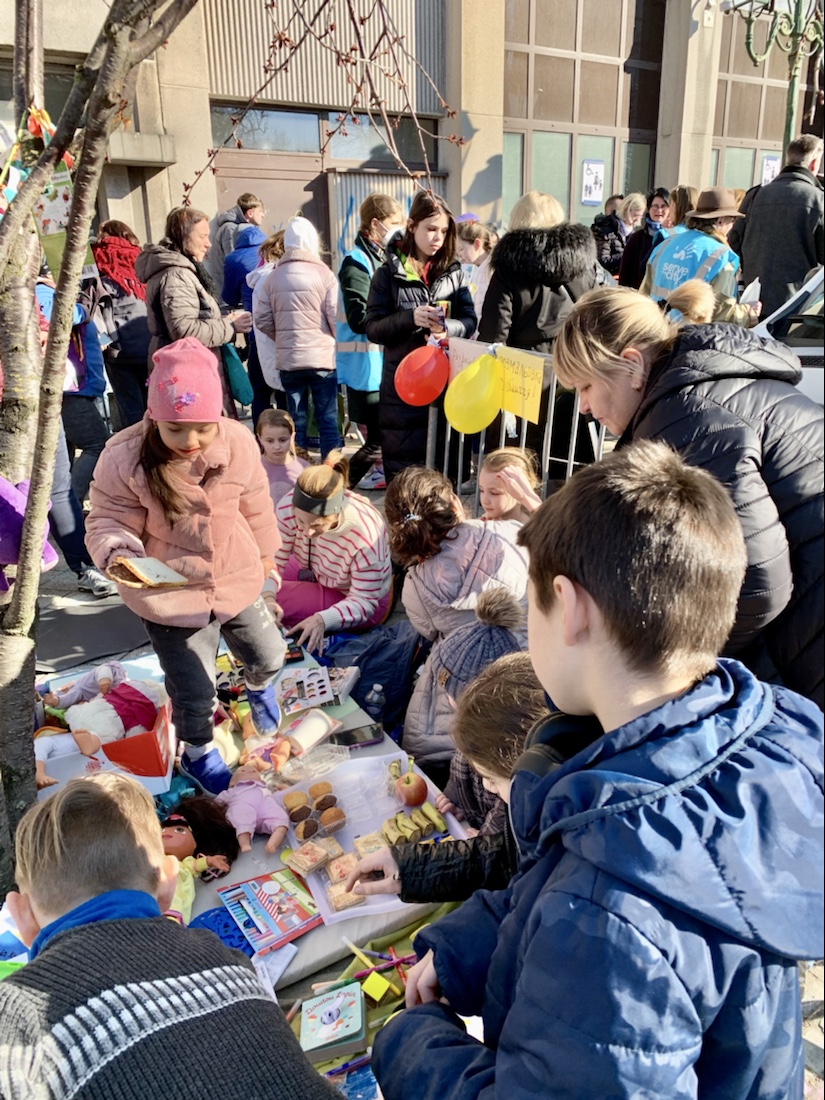
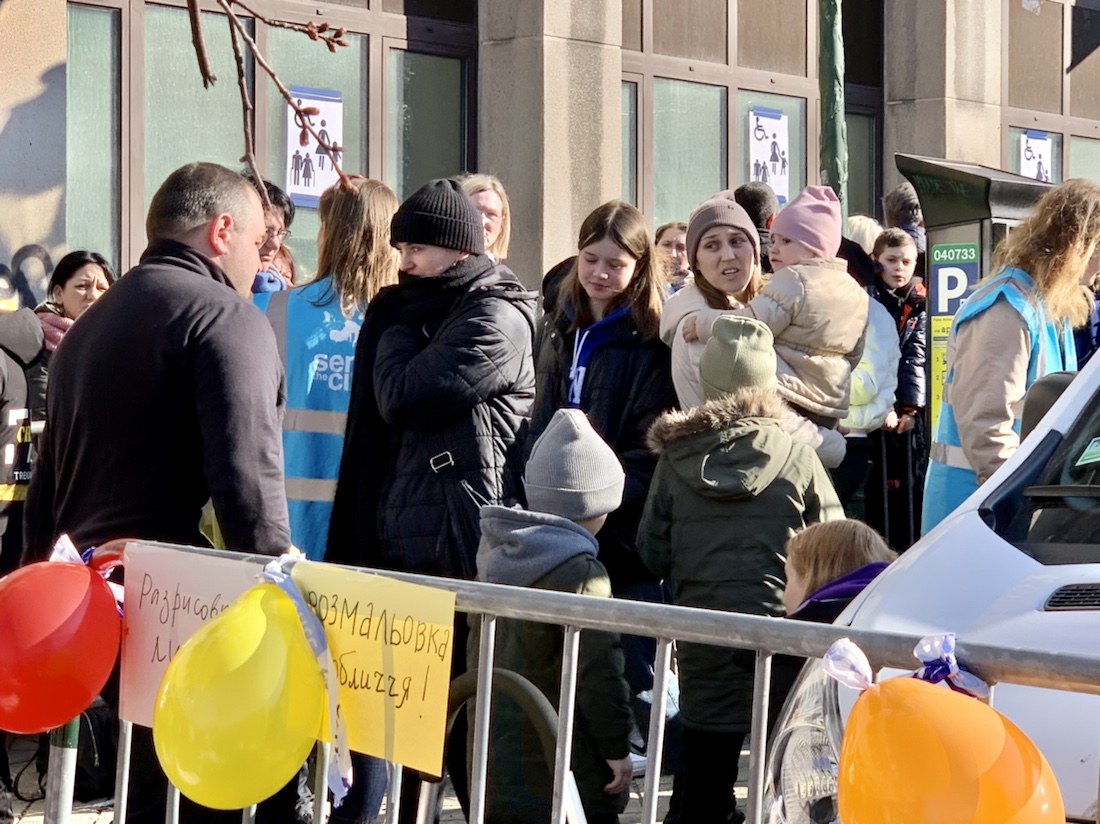
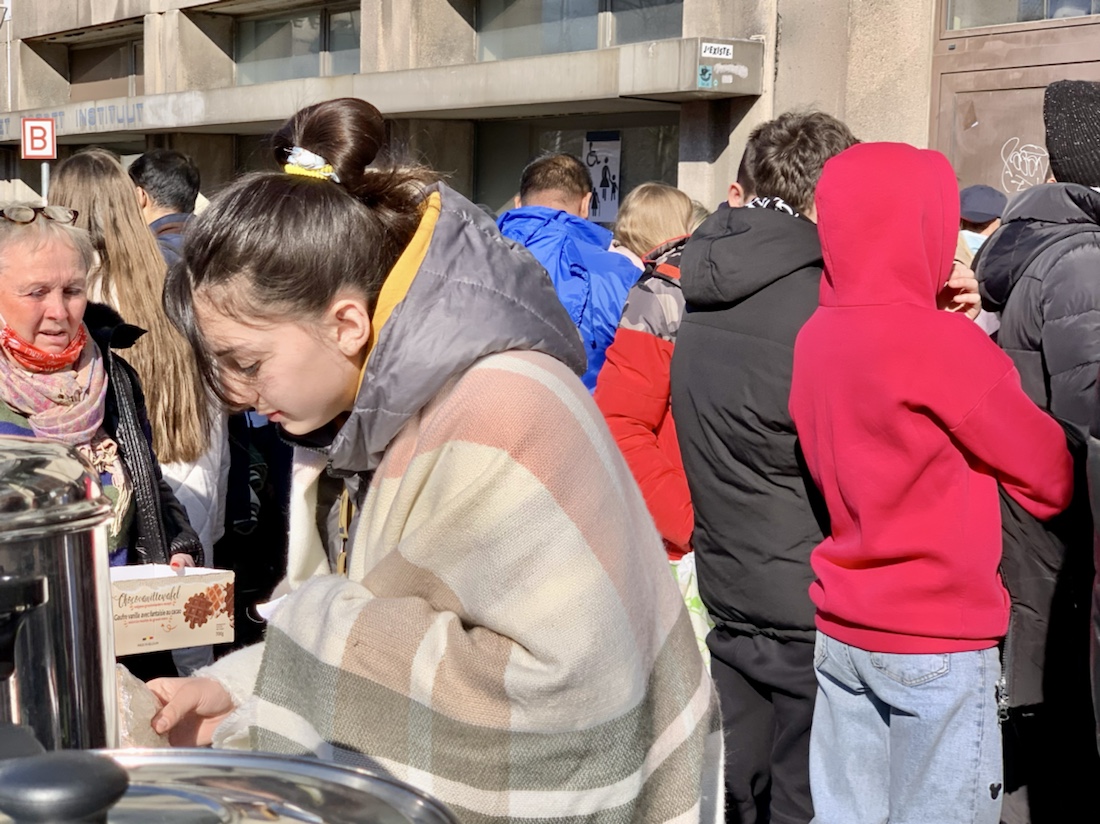
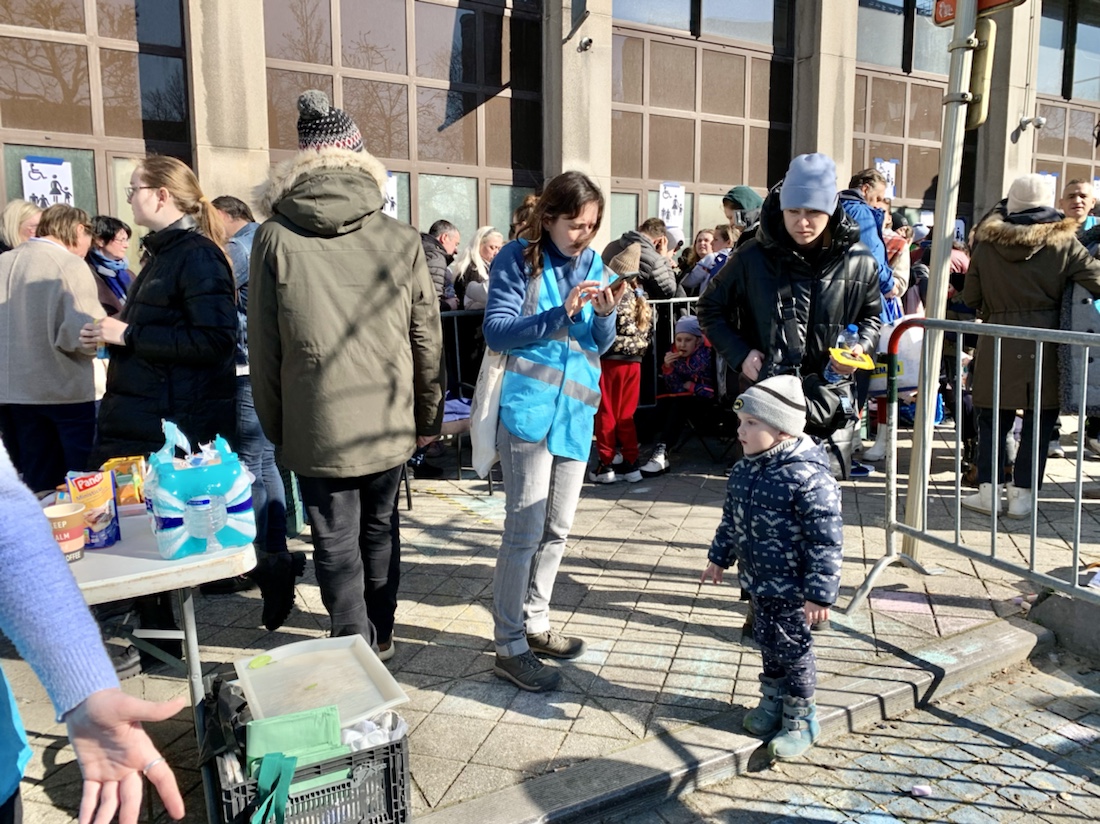
Thousands of people massed around the entrance of the Institut Jules Bordet in downtown Brussels today, Ukranian passports and identification papers in their hands. Children colored in fresh coloring books, a teenager held her dog in her arms, elderly people stared grimly at the unmoving registration line, families huddled together, people waited hours for news from their family members’ registration process.
Ukrainians fleeing the Russian invasion in their country were waiting in line to register as refugees in order to stay in Belgium; to work, see doctors, send their kids to school.
Police officers stood guard at the entrance to the building, surrounded by metal barricades. The line of refugees waiting to register stretched in both directions down the block.
Some people sat on the ground, some hunched against the barrier or leaned on the wall. A few, mostly pregnant women or the elderly, sat in camp chairs. A barrier separated the line from everyone else milling around on the sidewalk. Many people were waiting with the people waiting in line—those hosting refugee families or Ukrainian relatives already living in Belgium. Around them swelled the tide of people walking up and down the line: people looking for something to eat or where to go; volunteers offering water, food, toys for the children; police officers. The relief tables and volunteers were set up at the curb, spilling into the parking spaces. Mounds of donations piled up everywhere: clothes and shoes, fresh fruit, pastries, coffee and tea, soup, sandwiches, hot lunches, juice boxes, chocolate, candy bars, hard-boiled eggs, granola bars.
Between the tables and the street was less crowded: Ukrainians just arriving, Belgian residents asking how to help and what to donate, people dropping off donations, an Indian crew passing out data cards for cell phones, loads of news crews, men smoking.
It was chaos. Disaster relief is chaotic because disasters are chaotic. Belgian bureaucracy is also (needlessly?) chaotic. I mean, come on, Belgium—can’t people wait inside? Can we get an online registration where people can make an appointment and come when it’s their turn?
My friend Jenn told me she’d signed up to help pass out food with an organization she volunteers with and I asked if I could skip French class and tag along. We left after getting the kids off to school and arrived just after the breakfast rush. More volunteers showed up than signed up, so we weren’t even sure we’d stay; no need for competitive volunteerism if we’re just in the way. But first we decided to see if we could be useful. We grabbed trays of food and carried it up and down the line, offering muffins and whatnot to anyone who made eye contact. Most people did not make eye contact. Then we found some bags of donated toys and walked those around, making car noises and driving hotwheels over little kids’ jacket sleeves, making them smile, which made their moms smile.
Soon we realized that just by standing around with a blue vest, lots of people would ask us lots of stuff we were not qualified to answer. Hmmm, who knows where to put all these fresh sandwiches being delivered? Well…nobody. Everyone is busy. So we will just accept whatever is being delivered and organize it onto the table and start passing it out.
Not long after that, we realized we could answer questions and helpfully direct people. Baby? Front of the line! Sandwiches? Just there! Water? You got it! A translator? Here she is! Organize future meals? Talk to that guy! Can you pass stuff out? Not sure why you are asking me, but yes! What do we need? Diapers and sanitary pads!
Lots of people wanted to know what to donate, and this is always very difficult. The items people need right now is not what will be needed in an hour or tomorrow. Yesterday they needed coats and toys. People really delivered with the toys: bubbles, chalk, coloring books, markers and more. Today they needed baby wipes, diapers, first aid supplies. Yesterday they needed folding chairs for people; today a volunteer told us not to bring chairs or any donations we weren’t willing to take away when people left it.
“People keep leaving donations over there,” she gestured to the piles of clothes strewn about, “I don’t know who’s going to deal with what’s left behind.”
My recommendation is to donate money. Knowing who to donate money to is tricky because rotten people use disasters as an opportunity to steal funds of course. We donated through our church’s Ukraine relief fund.
Anyway, today the items most popular with the refugees were hardboiled eggs, clementines, juice boxes, squeezy fruit pouches for kids, croissants, backpacks. The kids all loved the Belgian chocolates and waffles of course.
Boys frequently moseyed up to the table to look at some of the very tasty looking snacks heaped in a cardboard box or questioningly pick up a couple of juice boxes. We’d nod encouragingly, offering some prime kid delicacy and their eyes would light up like they couldn’t believe it.
“This is all extremely sad and horrible of course,” I said to Jenn after the dozenth kid raced off with an armful of candy bars and a strawberry juice box, “but I wonder if some of these kids will be like, ‘I don’t really remember the stuff mom and dad remember, but I got to eat whatever I wanted and it was AWESOME.'”
I hope that will be the case for some kids, because the line was NOT awesome (obviously being a refugee is also not awesome). The main line didn’t move during the 3.5 hours we were there. Thankfully, the families with infants line was taken inside to register, but no one else was, including families with children who had been waiting for days. Some people got in line as early as 2 a.m. today.
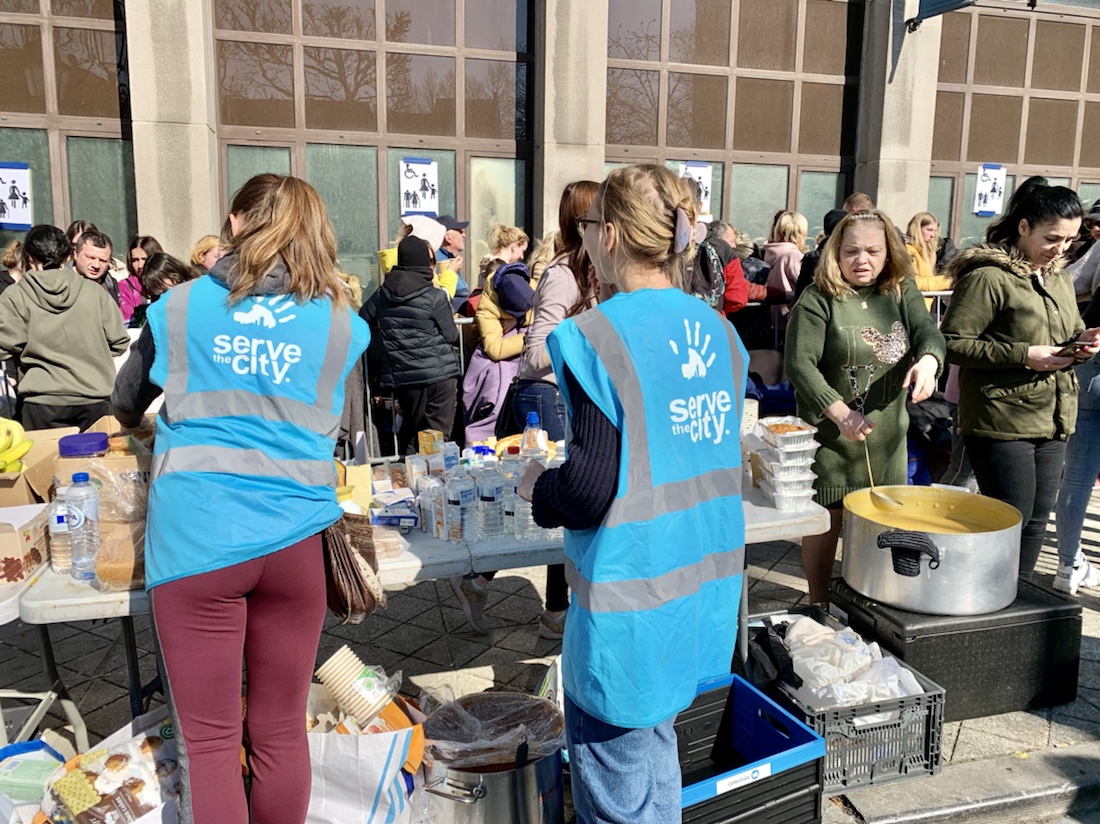
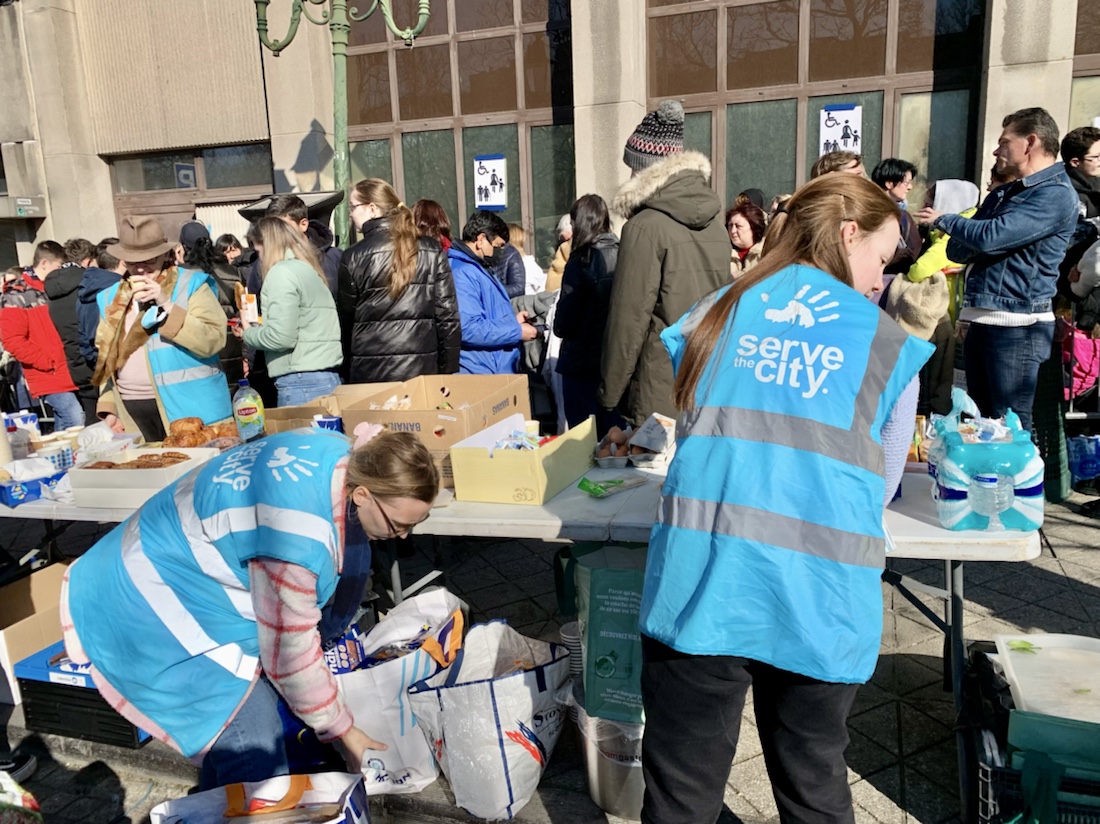
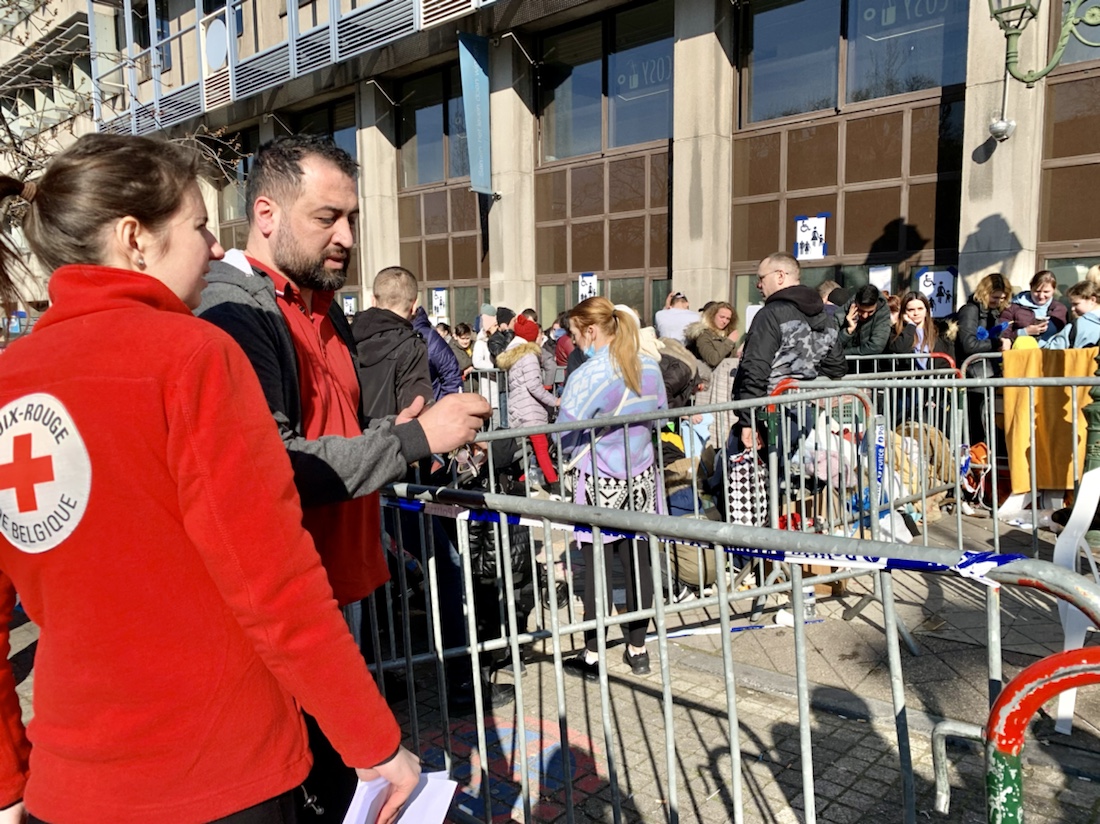

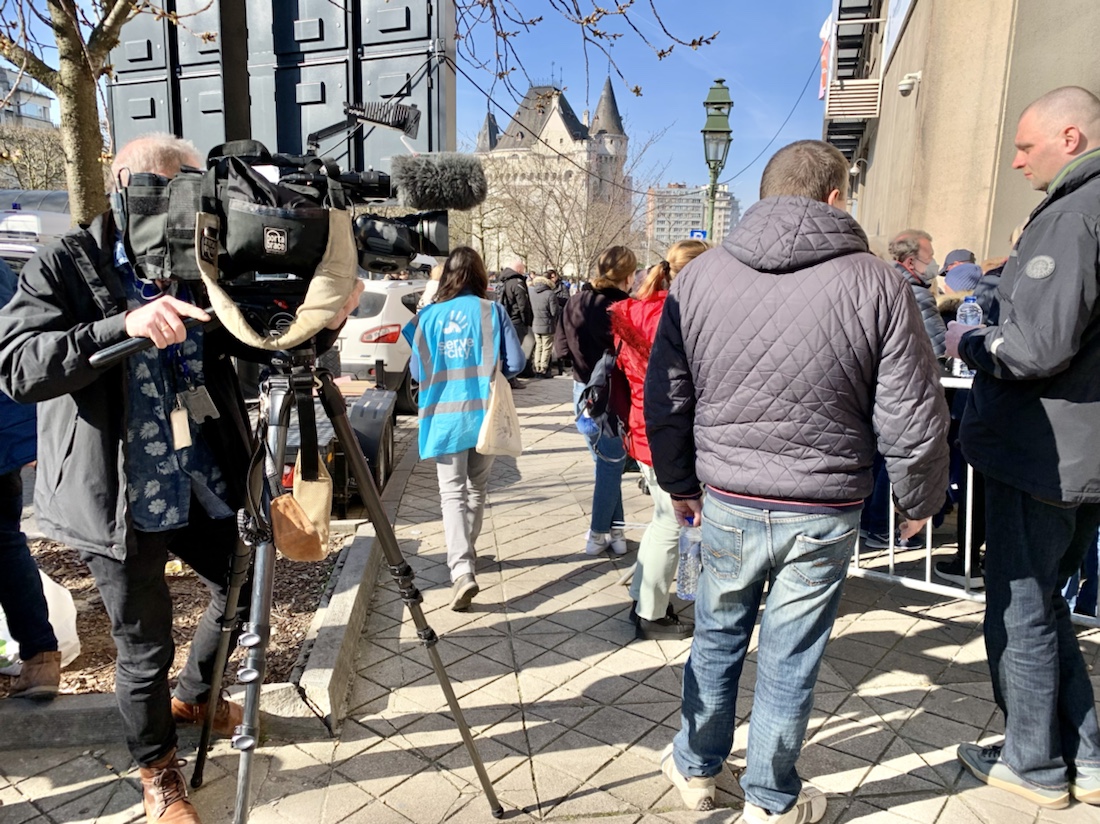
One man had his toddler son and three enormous suitcases with him. He was waiting for his wife, who was inside, but he couldn’t contact her and no one would let him inside. She and the kids had Ukrainian passports and he didn’t, although they all lived in Ukraine before the fighting started. But since he didn’t have the correct nationality for emergency refugee status, he was told to register at a different site. So he stood by the suitcases for hours. He was still there when I left. They all were.
A woman in her mid-20s came up to me and said she wanted to help. What could she bring, and could she offer shelter to anyone? Some of the refugees were staying in a shelter a block over, but some were staying with strangers who opened their homes nearby. Best of all, this woman spoke Ukrainian. “My sister has lived here several years, and now I am living here as well, so we can help,” she said. I asked how long she’s lived in Belgium. “Just two days, but now I will stay,” she said. She was one of the refugees herself and came back to help. She set off to find someone to stay with her.
Another woman came up to ask how she could help and offered her translation services. She spoke English, French, Dutch and Russian. When we asked where she was from, she hesitated. “I am Russian… unfortunately.” “We’re glad you’re here—that’s very useful,” I said. She gave me her card and someone soon whisked her away.
An English-Belgian woman showed up with some volunteers bringing food and was aghast at the chaos. “The Belgian government should be ashamed! Absolutely ashamed!” I agreed with her that it was chaotic, but threw in, “but the main person who should be ashamed is Putin, right? I mean, Belgium didn’t start a war….” But yeah, come on, Belgium, how about an online registry or something?! This is the land of “Please Make an Appointment,” after all.
Another woman came by to organize meals from the Greek Orthodox Church in Brussels for the refugees and also expressed dismay: “Where are our churches in this? It’s a disgrace! The churches need to open, they can line up cots in there, we’ll organize the meals, but they’re hung up on who’s going to pay the electricity bill. Who’s going to pay that? Who’s going to pay?” She looked at me. She seemed to want an answer since she said it twice. I felt like my blue vest meant I should come up with something. “I mean… I’ll chip in…?” “Me too,” said Jenn. The woman kept shaking her head and saying it was a disgrace. Maybe we weren’t supposed to answer after all.
We took off the Blue Vests of Dubious Authority and headed home for school pickup. The last time I saw the boy who blinked back tears, he was coloring neatly and his brother was playing with a toy car. The mom and I smiled briefly at each other, but by the time I met the translator, they had either gone inside or left, I’m not sure which. I would have liked to talk with more people, hear more people’s stories, tragedies, victories. There are always victories to tell.
On the drive back, Jenn said the human suffering hit her in a new way when she saw families with their cats in little cat carriers. The realization that they brought all they could. That many people were forced to leave pets, families, everything behind. That the weary, stone-faced, shell-shocked people waiting in an endless line are the lucky ones, the ones that escaped.
This post has no neat ending. It’s not over. With 200,000 refugees expected in Belgium alone over the next few weeks, the few hundred we saw today is just the beginning. Pray for Ukraine. Pray for Ukrainians. There will be victories to tell.
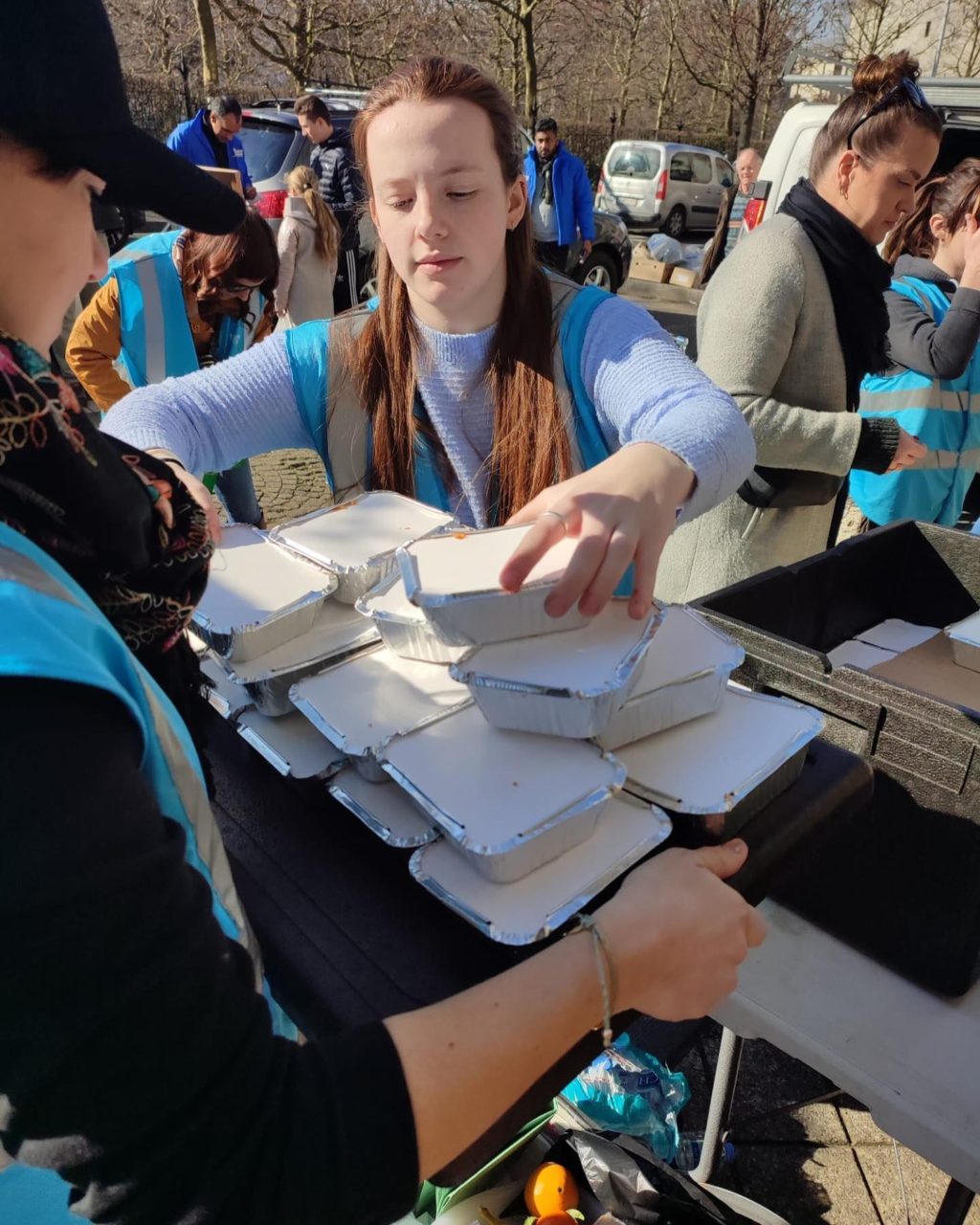
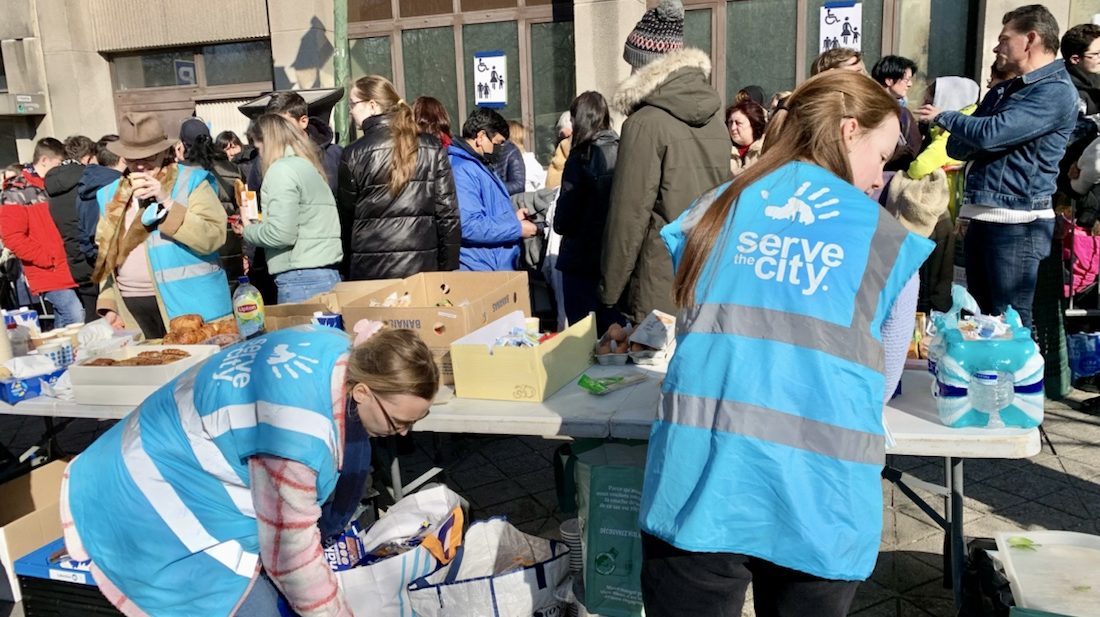
 Christmas 2020
Christmas 2020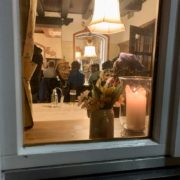 Bavarian Customs
Bavarian Customs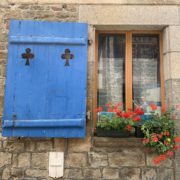 Tu Dis Oui, ou Tu Dinan?
Tu Dis Oui, ou Tu Dinan? Land of the Rising Sun
Land of the Rising Sun
Dear Mari, thank you for witnessing for us, for the world, for Ukraine.
We love you, malama poni nui.
Kawena
All f this is so sad and incredible in 2022…